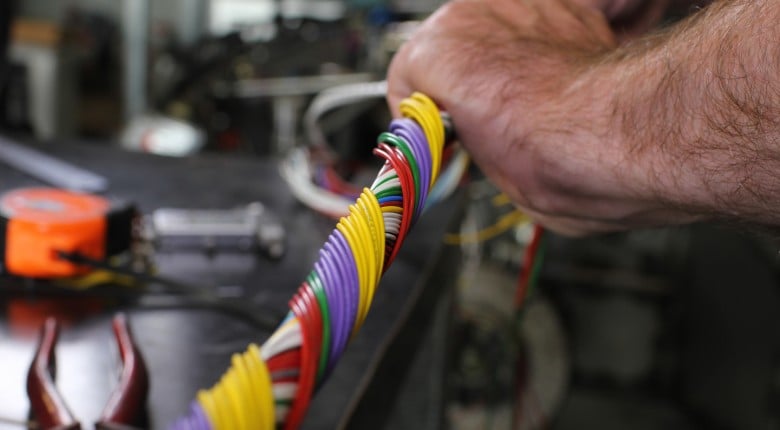I just wanted to talk a little bit about the Tefzel mil-specwire that we used for making the loom in Nigel’s Ute. Now most of the automotive wire that you’d be used to seeing is pretty cheap and they’ll get the job done. There are some pretty big advantages with the Tefzel wire though and I wanted to explain those.
First of all, you’ll notice if you compare, link the Tefzel wire with some regular automotive wire, you can notice that that the insulation on the outside of the Tefzel is much, much thinner.
Now this really helps when you’re running a lot of wiring through a loom because the bunch of wire is much smaller in diameter. It’s also a hell of a lot lighter. Now wire on that is on it's own you might not think of ways very much but when you’ve got quite a complicated loom, that weight really starts to add up.
Despite the insulation being so much thinner, it actually offers more protection and safety to the wire than what you’d get from regular automotive wiring. I want to show you one of the advantages which is its heat resistance. What we’re going to do here is we’re going to heat up the link of regular automotive wire alongside a piece of Tefzel.
What you can see is with the heat gun on this wire, the Tefzel wire basically doesn’t discolor. It doesn’t get damaged at all. It still remains just the same as before the test. The normal automotive hookup wire on the other hand, you can see the insulation rapidly discolors then actually burns.
Now where it’s burned like that, it will crumble, it will pull of the wire itself exposing the copper strands underneath. That’s a great chance for that wire to short out and cause a lot of damage.
The Tefzel wire is much more resistant to heat. It’s much more resistant to abrasion as well and that’s going to end up giving you a much more reliable loom. That’s exactly what you need in the rough sort of motorsport world. You want to be able to rely on your wiring loom.







Comments
No one has commented on this page yet.